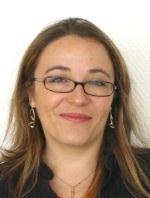10:50-11:05 a.m., Tuesday

Sabine Delannoy, PhD
Research Scientist
Laboratory for Food Safety
French Agency for Food, Environmental and Occupational Health and Safety (ANSES)
14 rue Pierre et Marie Curie
94701 Maisons-Alfort Cedex, France
Use of next generation sequencing and high-throughput qPCR for molecular serotyping of E. coli
Delannoy Sabine1, Beutin Lothar2, Fach Patrick1
Serotyping of E. coli remains a crucial step in clinical and epidemiological investigations. The conventional serotype identification, based on the serological agglutination of 184 somatic O-antigens and 56 flagellar H-antigens, has led to the identification of over 400 E. coli serotypes. However, in addition to being ill-adapted to typing large number of samples, many samples remain untypeable by agglutination. Indeed, cross-reactions, the existence of "O rough" strains that have lost their ability to express the O antigen, and non-motile strains that do not express a flagellar antigen, all hamper the efficiency of the method. Molecular serotyping, targeting genes involved in surface antigen synthesis, is a rapid, specific and cheaper alternative to conventional serotyping. In particular, qPCR has proven to be a valuable option and a number of qPCR assays have previously been designed targeting O-antigen gene clusters (approx. 20 serogroups) and fliC genes, mainly targeting serotypes known to be associated with human diseases. We have undertaken to systematically sequence by NGS all missing O-antigen clusters and design specific TaqMan qPCR assays targeting each known O-antigen gene cluster and fliC gene. The use of high-throughput qPCR format ("PCR on chip") allows for validation of the assays against large numbers of isolates and can ultimately offer complete, fast and cost-effective molecular serotyping of E. coli strains.
1) Anses (French Agency for Food, Environmental and Occupational Health & Safety), Food Safety Laboratory, IdentyPath platform, 14 rue Pierre et Marie Curie, Fr-94700 Maisons-Alfort, France.
2) National Reference Laboratory for Escherichia coli, Federal Institute for Risk Assessment (BfR), Diedersdorfer Weg 1, D-12277 Berlin, Germany.

